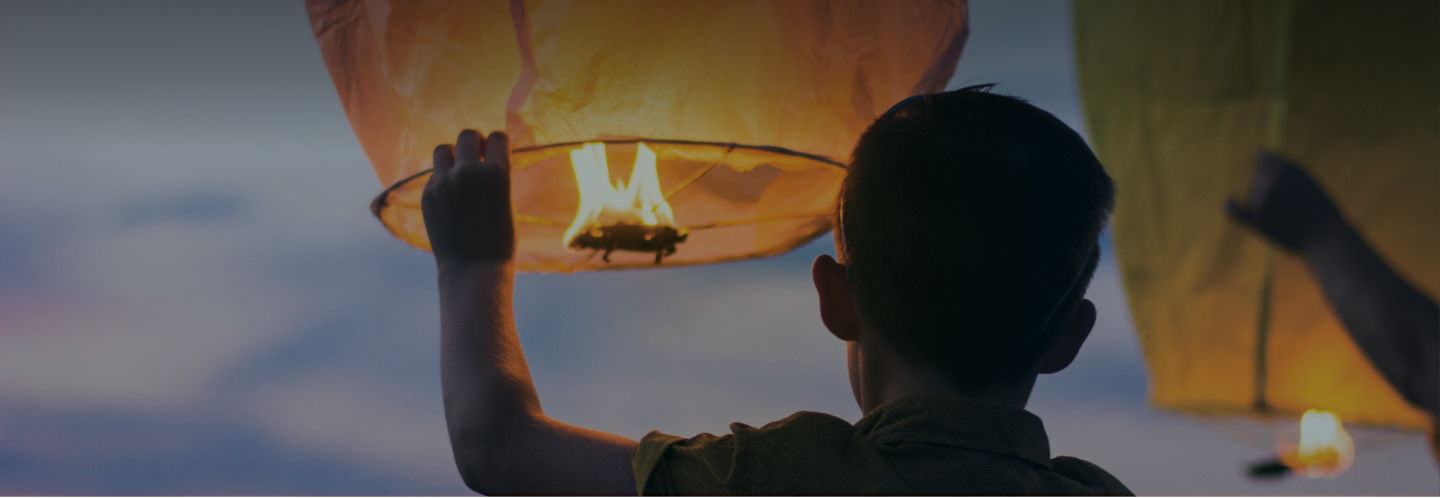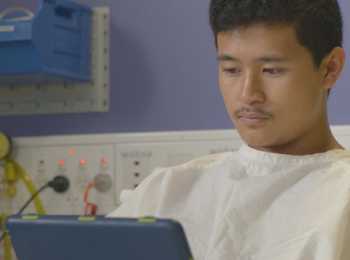Cancer is a tough topic. You may have stuff that you want to know but you’re not sure how to ask or who to ask. You may have many fears and concerns but don’t want to worry or upset people.
It’s up to you to decide who you do or don’t tell that you’ve got cancer, and how much you tell them about what’s going on.
You might be avoiding telling friends or other people because you’re worried about how they will react.
Lots of websites and videos show families sitting around sharing their innermost thoughts, but the reality is that not all families talk openly and honestly about what is happening or how they feel. How your family communicates about cancer may depend on how you have always communicated and your situation. A cancer diagnosis isn’t going to suddenly change that.
It’s normal to be worried about how they will react and whether they will treat you differently. But usually once people understand what you’re going through they can be a great source of support.
You’ve got what? Who to tell you have cancer
Talking about cancer with your closest friends and family can be challenging enough, but how do you tell people in your wider social circle, such as friends at school, uni, TAFE or work?
Who to tell and what to tell them can be a difficult area to navigate. You might be unsure of how people will react and afraid that they will treat you differently.
You may get several different reactions. A common reaction is shock. Some people may not know what to say and you may feel that some say too much. Some relationships may grow stronger with people stepping up and being a huge support while others may fade away.
Sometimes your treatment might make it a bit hard not to say something – but how much you tell and allow others to share is still up to you.
Ultimately, you should feel in control of who knows about your cancer and treatment, including how much you disclose. There will be different things to consider depending on your situation, such as: what kind of treatment you are having and for how long, who you need to support you (e.g. teachers, bosses and colleagues), and the type of relationships you have with certain people. The treatment process or side effects of the treatment can be noticeable to others and make it tricky not to tell others what is going on.
After being diagnosed, I told my whole family. I would suggest that it’s best to call, not to text, as they can't hear your emotions in your voice when you text. Telling people right away isn't for everyone. Sometimes you need to take your time and take in the information first. Amy, 25
Reasons to tell:
- To get support from people you trust and who you know will be there for you
- To take time off for study and work to attend treatment. If you tell your teachers and boss the real reason, they are more likely to offer to help you out. Classmates and colleagues you trust can also be helpful with keeping up or returning to work and study
- If treatment affects your energy and concentration levels. It might be better for people to know there is a reason for this instead of them making one up. That doesn't mean you need to tell them everything.
Reasons not to tell:
- You may feel embarrassed talking about your cancer, as it may relate to private parts of your body (such as your breasts or testicles). You are in control of what information you provide, so you decide how much detail to give.
- You can’t be bothered telling the same story and answering the same questions over and over.
- You may feel your life is now being dominated by a disease that you didn’t ask to have. Maybe work, school, uni or TAFE is one of the only places where you are not feeling like you are defined by cancer.
- People may want to share their own cancer stories with you – good, bad and ugly. Again, you choose if and how you respond to this and that may mean not sharing your own story.
Tips for telling people you have cancer
- Think about what you want to say.
You could write it down, or even practice it with someone in your family. Maybe you could find someone who’s been in a similar situation and ask them how they handled it.
- Be prepared for weird reactions.
Sometimes friends act weird when you tell them what’s going on. They might ask some uncomfortable questions as well. Remember that they might not fully understand and are probably shocked by the news. They may have no idea what to say or do, or be worried about saying the wrong thing or upsetting you.
- If it’s too hard to talk, try other ways to share the news.
Try putting it in an email or DM or maybe on Facebook (if you want your whole social network to know!). Or send them a link to this website where they can read about the kinds of things you’re going through and ways they can support you.
- Decide who to tell.
Talking about cancer with your closest friends and family can be challenging, but what do you do about telling people in your wider social circle, like work colleagues or sport teammates?
- Talking can be easier if you are doing something else at the same time.
For example, doing some gardening or cleaning up in the kitchen – talking can be easier when the focus isn’t directly on you.
- Try not to worry about it too much.
This whole thing is strange and scary, and it may take time to work out the best way to talk to each other.
- Go online.
Check out some blogs or forums and see how other people told people and their experiences.
- Decide what others can tell.
Give permission to your friends, family or teachers to tell other people if you want them to know but don’t want to tell them yourself. Make sure they understand if you want to keep the information private.
- Be prepared to deal with insensitive or silly questions.
You could refer people to a website (like the Cancer Council) to learn more about your kind of cancer.
- Canteen can help you develop the skills around telling people you have cancer. They can also help you negotiate school, uni, TAFE and work during this time.
Who do you have to tell?
If you are a student, there is no legal obligation in Australia for you to tell your school, uni or TAFE about it. But if you think your cancer will affect your marks and ability to meet course requirements, it is a good idea to tell your teachers or access the student advisory services centre so they can help you with your workload or exams if necessary.
If you are working, you may have to tell your boss or the human resource manager especially if your treatment involves you taking time off. They may also be able to help in other ways, such as reducing work hours or helping with physical access.
Canteen’s Education and Career Service can help you work out what to do and keep you connected to study or work during and after treatment.
Don’t forget that you get a say in who knows at school. If you would rather not tell people, ask your year coordinator or teachers to maintain your privacy. Ask your YCS Cancer Care Coordinator for advice about who to contact.
If you don’t know your teachers, lecturers or bosses very well, you may find it easier to email them. There are email templates on Canteen Connect that can help you to do this.
You don’t have to tell anything to anybody. Sharing your cancer experience always starts with you – don’t feel like it, don’t have to. Ezra, 21
You shouldn’t go through this alone
You shouldn’t go through cancer alone and you may be surprised how much you can manage when you talk about what you’re going through. So the trick is to find the right time and the right way for you to talk about stuff.
Here are some key questions to think about before you tell family and friends:
- What do you want them to know?
- What support do you need?
- Who else knows – who can they speak to?
- How would you like them to ask questions after the first conversation – what is the best way to stay in touch?
Deciding if and when I should tell people about my cancer is something I'm still figuring out years after finishing treatment. Most of the time I only bring it up with someone new if it naturally comes into conversation, and I've gotten used to every single person having a unique reaction to finding out. Marnie, 25
Sharing online
Some people use social media to let their broader network know they have cancer. It can be good to think about this approach because once it's 'out there', you can't take it back and it could be shared widely. Closed/private groups and accounts can be helpful.
It's wise to talk with those closest to you about how you want your cancer diagnosis shared online – whether any updates and permissions come directly from you, or if a trusted partner or family member can do this for you.
The most challenging part at the start of my journey was telling my new friends. I never wanted to burden anyone with the news. I did individually call my close friends and then later shared the news on Facebook. It may be scary to tell people about this, but I got so much support when I did. Fiona, 22
When talking is too hard
Some days you may not want to talk about cancer but still want to express your feelings, just for yourself, or to let your family, friends or partner know how you are feeling.
You can:
- Draw pictures
- Keep a journal. You can choose to keep it private or share it with your family or friends
- Write a letter, email or blog
- Find songs that say it for you
- Send a text message
- Leave signs on your bedroom door.
If you or your family really have difficulty talking to each other about cancer, it may help to speak to a counsellor or social worker. They can give you ideas on how to communicate with each other or even be there if you need them. Contact Canteen for information about free counselling services.
Talking to children about cancer
If you have children, telling them about your cancer can be difficult. The younger the child, the longer it will take them to understand what is happening. Your children will probably be very worried about you but also concerned about what will happen to them.
Your children will most likely know something is wrong, especially if your appearance changes, so it’s best to be honest. Explaining what’s happening will help them feel confused, anxious or left out.
These tips may help:
- Give children the opportunity to ask questions and discuss their feelings.
- Give young children information in bite-sized chunks to help them adjust.
- Reassure them that it is not anyone’s fault.
- Explain that cancer is not contagious and they can’t “catch it”.
- Make sure there is time for them to ask questions and know that it’s okay to ask whatever they’re thinking.
If you feel uncertain about how to have this conversation with your children, talk to your treatment team or contact Canteen for support. It might also be a good idea to chat with a counsellor in your treatment team and you can also connect with other parents through the Parenting through Cancer community.
This resource provides practical advice and tips for parents impacted by cancer on communicating and supporting their children through cancer.
Cancer Council NSW has a great resource about how to communicate with your child about your cancer and treatment. You can download Talking to Kids About Cancer from cancercouncil.com.au or order a free copy by calling Cancer Council on 13 11 20.


















